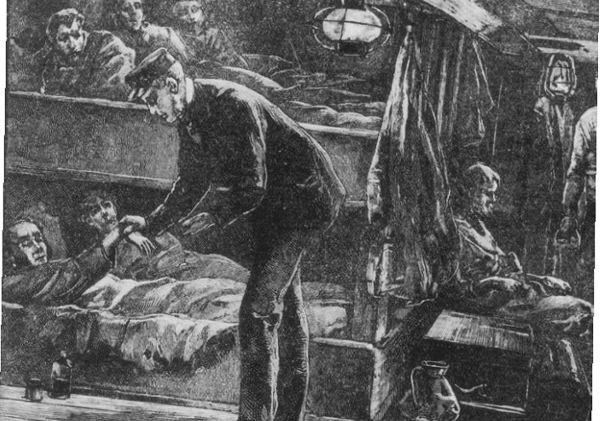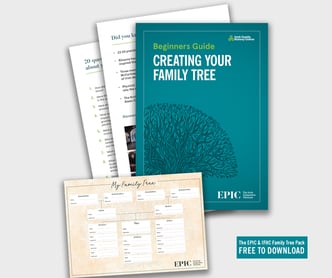The remarkable story of Dr David Hadden, the Skibbereen Famine Doctor

This story comes from research commissioned by a private client based in the US, and is told with permission.
BETWEEN 1845 and 1851 Cork was one of the counties hardest hit by the Famine, particularly the coastal region of Cobh, Clonakilty and Skibbereen, stretching north to Kanturk. Fever and infectious diseases such as cholera and typhoid were rampant and local Famine relief efforts were hampered by fear of contact with the dying.In 1840, Dr David Hadden (1817-78) qualified as a doctor, and took a job as Dispensary Doctor in Drimoleague, near Skibbereen, a place for which he had a great fondness. As the son of a Methodist minister, Hadden’s childhood had been nomadic, the only fixed point being visits to his maternal grandparents, the Evans, in Skibbereen. Young Dr Hadden had barely settled in when the Famine broke out.
As a dispensary doctor, he experienced at first hand the very worst effects of Famine. Medicine was his vocation, and he brought in a punishing work schedule, which saw day-long clinics in the local dispensary, followed by trips into the surrounding district to treat people in their own homes. After dark, Hadden would climb into his pony-and-trap, and drive to remote districts to visit people too weak to walk into town.
Locals remarked that young Dr Hadden, and his colleague in the adjoining Dispensary, Dr Donovan, regularly worked into the early hours of morning. Long hours and overwork had an impact on David Hadden’s health: he contracted cholera, and his own doctor believed he would die, but he recovered and resumed his work.
Dr Hadden’s efforts in the Famine years saved lives, and went beyond his duty as a doctor. Mr Newman, from the Skibbereen Board of Guardians spoke of ‘instances where the doctor left the dispensary to attend patients living in mountain districts, a distance of 20 miles apart’ such was his kindness and attention.
The local community believed that many more would have died locally, but for Hadden’s efforts. In the 1850s, 60s and 70s, Dr Hadden worked in Castletownshend, and subsequently at Drimoleague Dispensary. In 1871, on his retirement, Hadden was presented with a silver bread basket, containing 75 sovereigns — ‘a large gift for so poor a district’.
In 1878, Dr Hadden died. Local newspapers reported that in the last week of his life, locals laid rushes on the street outside his window to reduce traffic noise. On the day of his funeral, the residents of Skibbereen called a halt to all official and commercial business in the town.
The local newspaper recorded that all businesses closed; the Petty Sessions [District courts] convened; as did the Workhouse and Dispensary. Dr Hadden’s coffin was carried on a circuit of the town.
Want to learn more about how you can start researching your family history? Click here to read the Irish Family History Centre's 12 tops tips and advice on how to begin exploring your Irish ancestry.
EPIC & the Irish Family History Centre have created a beginners guide to help you take the first steps on your genealogy journey.
To find out more and to sign up to receive the pack, click below.


